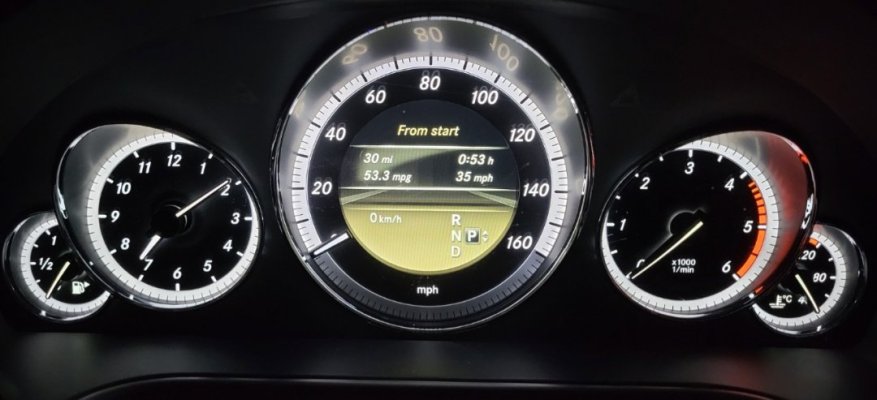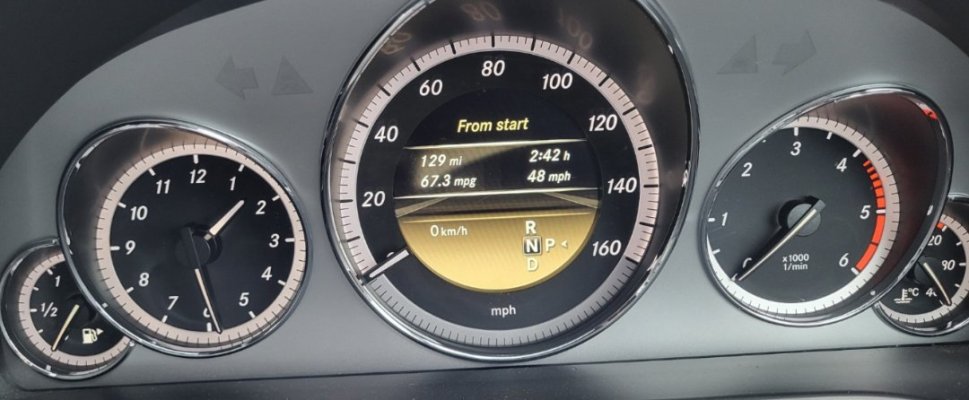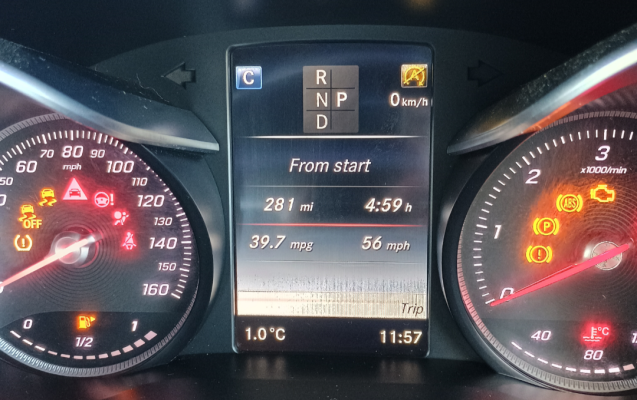ChrisPDuck
Active Member
- Joined
- Aug 31, 2022
- Messages
- 489
- Location
- Nottingham
- Car
- 2010 S212 E500, 2006 W221 S600, 1983 VW T25, 1984 Alfasud 1.5ti Green Cloverleaf
There's definitely scope for a difference of a few percent changing from old to new tyres and correcting pressures. If the old tyres had lost, say, 5mm of tread depth, that's about 1.5% of the radius, so if my earlier argument is correct then your mpg would appear to drop by that much with the new tyres. Plus, actual tyre dimensions for a given size vary among tyre manufacturers. Then there's the question of the effective circumference when the pressure is changed - it's a complex relationship, but the principle of the wheel speed-based indirect tyre pressure monitoring systems is that the number of revolutions for a given distance varies with tyre pressure. So maybe there's scope for a few more percent change, if, say, the old tyres were a bit under-inflated and the new ones are correctly inflated.
But these effects aren't going to add up to 25-30%. The best way to find out if the actual fuel consumption has changed or whether it's just a miscalculation by the car's computer is, as colinallcars suggests, to do a brim-to-brim check.
But these effects aren't going to add up to 25-30%. The best way to find out if the actual fuel consumption has changed or whether it's just a miscalculation by the car's computer is, as colinallcars suggests, to do a brim-to-brim check.



